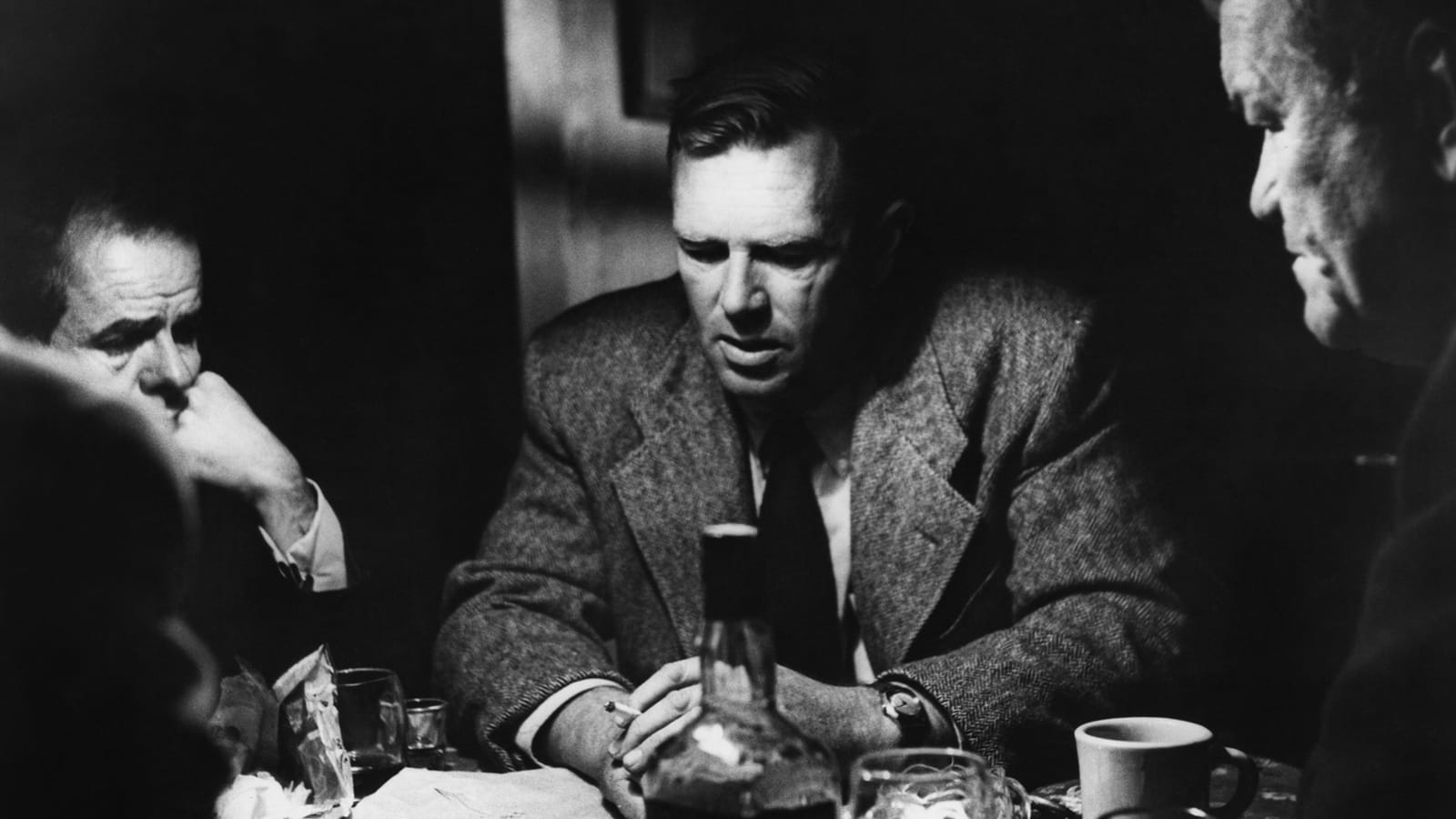The Killing

One of the most ingenious and entertaining crime thrillers ever made, The Killing marks what its director Stanley Kubrick would like to think of as the real beginning of his career. The future director of 2001: A Space Odyssey, A Clockwork Orange, and The Shining had made two low-budget features prior to this 1956 production—a war film, Fear and Desire (1953), and a gangster melodrama, Killer’s Kiss (1955). Both were good enough to get Kubrick’s foot in the door of moviemaking big-time. But getting that door to open wide required something more than a demonstration of B-moviemaking know-how. Kubrick needed to show he had what it took to become a major player in the big studio feature filmmaking game. The Killing provided him with the opportunity to do so. Produced independently by Kubrick and his partner, future director James B. Harris (Some Call It Loving, Cop), it was more than the work of “promise”—The Killing was promised fulfilled.
Based on a novel by Lionel White, The Killing is at base a fairly straightforward accounting of a racetrack robbery engineered by a group of small-time crooks. There’s nothing straightforward, however, about Kubrick’s style. The sense of cool remove, obsession with technical detail, and unblinking regard toward violence that would make such Kubrick classics as The Shining, Barry Lyndon, and Full Metal Jacket is everywhere apparent in this tight, sleek action film highlighted by an array of sharp character performers and the polished sheen of Lucien Ballard’s high contrast cinematography.
Many movie fans find more than a passing resemblance between The Killing and John Huston’s 1950 classic The Asphalt Jungle, as both concern a heist and both star Sterling Hayden. But there’s a world of difference between the warmth and compassion Huston shows toward his crooks and the clinical distance held by Kubrick. Huston’s view of the world is pessimistic. Kubrick’s goes beyond that state. It isn’t that Kubrick lacks compassion, it’s simply that he knows such feelings are wasted in a self-destructive atmosphere—which is, by and large, how he regards what man has made of his lot.
In The Killing, Kubrick utilizes a narrator extensively, both to give the film a documentary veneer and to highlight the complex, detailed planning involved in this “inside job” in which a brawl in a racetrack bar and the shooting of a horse are contrived to create a distraction while the heist—committed by a lone robber—is in progress. You can’t help but admire the daring and ingenuity of the caper. At the same time you can’t but come to realize the nature of the forces at work that bring these best-laid plans to earth. Elisha Cook, Jr. and Marie Windsor play a married couple who stand at the heart of the heist’s trouble. He’s the chief “inside” man—a nervous racetrack teller. She’s his wife—a cold, faithless, manipulative monster. Windsor, who spits out the witty, insolent lines Kubrick and his collaborators Calder Willingham (End As a Man) and Jim Thompson (The Getaway) provide for her with gusto, makes this low-rent Lady Macbeth into one of the most memorable femme fatales in movie history. Looking at her imposing figure astride the dimunitive Cook, it’s just about impossible to imagine what brought them together. That, of course, is part of the joke. It’s the earliest, and one of the most pungent examples of the deadpan “black humor” that would become a Kubrick hallmark.
Watching Windsor and her criminal boyfrend (Vince Edwards) plot to grab Hayden’s ill-gotten gains, it’s also possible to note in miniature form a major Kubrick theme in process—the arbitrary way the best-laid plans can go awry. Hayden and his gang have taken everything into consideration—except for this development which comes completely out of left field. Like the Pentagon leaders who did not figure a wild card like General Ripper into their plans in Dr. Strangelove, or the space scientists who did not calculate the “Hal 9000” computer turning against its operators in 2001: A Space Odyssey, Kubrick’s crooks are victims of a fate beyond their control.
In The Killing, this Kubrickian fatalism leads to a climax as bloody and memorable as any the movies have given us (on view in Chapter 16). It’s as if a sensational tabloid item suddenly turned itself into a Jacobean revenge tragedy—horror with a sense of grandeur. But this climactic moment is just one of the highlights of a film filled with brilliantly staged set pieces and beautifully performed turns by such otherwise unsung supporting players as Jay C. Flippen, James Edwards, Ted DeCorsia, and Timothy Carey. Working together with a dedicated, professional filmmaking team, they all help make The Killing a modern classic of the crime film genre.




